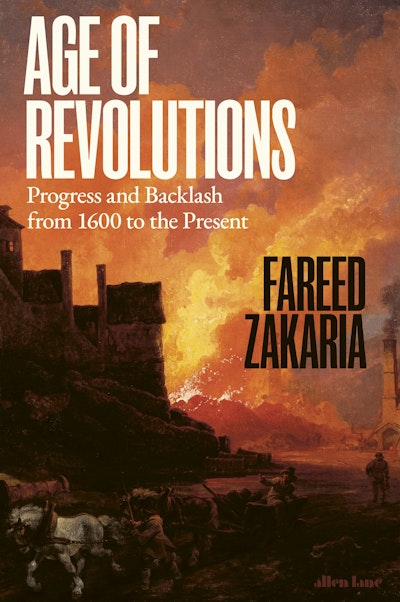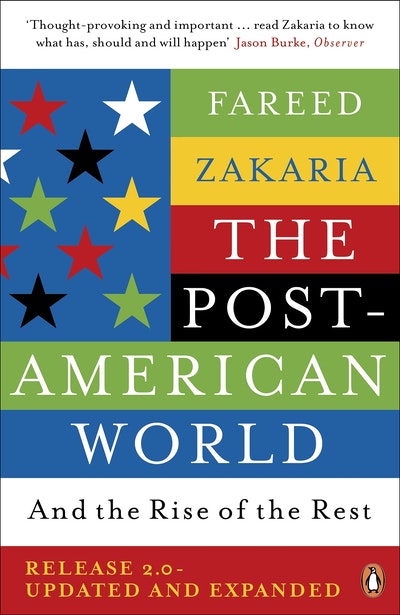- Published: 30 July 2024
- ISBN: 9780241692417
- Imprint: Allen Lane
- Format: Hardback
- Pages: 400
- RRP: $65.00
Age of Revolutions
Progress and Backlash from 1600 to the Present
- Published: 30 July 2024
- ISBN: 9780241692417
- Imprint: Allen Lane
- Format: Hardback
- Pages: 400
- RRP: $65.00
Powerful ... Zakaria’s book will help readers feel honoured and grateful that we get to be part of this glorious and ongoing liberal journey. He understands that we liberals can’t just offer economic benefits; we also have to make the spiritual and civic case for our way of life
David Brooks, The New York Times
Zakaria has figured out policy wonkery and TV, and many points between. The Indian-born pundit could thus claim to be America’s best-known tutor on world events. Even by his standards, however, Age of Revolutions is breathtakingly ambitious ... Age of Revolutions successfully bridges the divide between the general reader and the academic. It is an easy read that offers fresh perspective. That is no mean feat
Edward Luce, Financial Times
Zakaria believes that we can and do make progress. But he is wary of the assumption that history tends to move in the direction of ever-greater human flourishing ... Zakaria’s book represents an attempt to distinguish between revolutions that have inspired thermostatic reactions and revolutions that have endured
Gideon Lewis-Kraus, New Yorker
Zakaria [is] a lively writer and good storyteller ... [he] warns against revolutions that move too fast and displace too many people; it now seems that’s exactly what went wrong in the last 40 years with the rise of the global economy
Tim Wu, The New York Times
This is the indispensable book for understanding the world today. Fareed Zakaria tackles the central question of our age: What are the causes of the seismic social disruptions we are going through and the political backlashes that have ensued? Connecting five centuries of history to a deep understanding of our current anxieties, he shows how transformations in technology, economics, and politics interact. We are living through one of the most revolutionary ages in history, and the resulting disruptions have led to a clash between those who celebrate progress, open markets, and technology versus those who resist them. Zakaria argues that we must infuse our journey forward with moral meaning and restore a sense of pride in the ideals of freedom, individual rights, and democracy. The result is both a fascinating look at history and an inspiring vision for the future
Walter Isaacson






